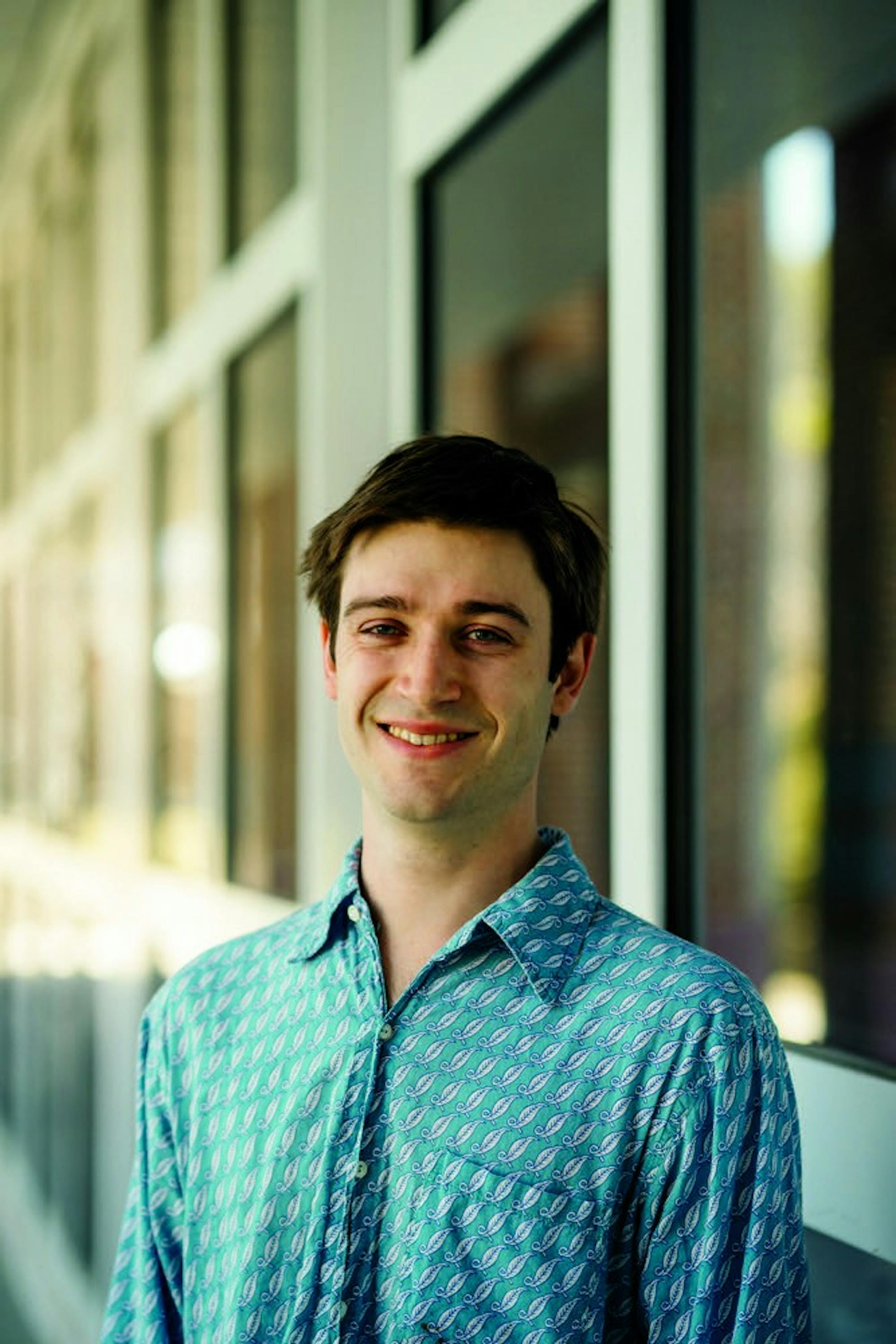This fall, William “Billy” Sandlund ’18 and Rae Winborn ’14 will travel to Beijing, China as Yenching Scholars, pursuing interdisciplinary master’s degrees in Chinese studies at the Yenching Academy of Peking University. The scholarship covers tuition fees, travel expenses for one round-trip, accommodations and living costs on Peking University’s campus, according to the Yenching Academy website.
The scholarship aims to connect China to the rest of the world by offering “young people who have demonstrated a talent for leadership and innovation” the opportunity to immerse themselves in an intensive learning environment focused on China’s “past, present and future role in the world,” according to the program’s brochure.
The two-year master’s program consists of a 12-month mandatory residence period at the Yenching Academy for international students, which is followed by an additional 12 months where the students must write and defend a master’s thesis.
Scholars must choose to concentrate their graduate studies on one of six research areas, which include economics and management, history and archeology, philosophy and religion, politics and international relations, law and society and literature and culture.
Winborn said she will concentrate on economics and business management. Sandlund, on the other hand, said he plans to study Chinese law and society.
Winborn, a Chinese adoptee who grew up in rural Colorado, did not have the opportunity to learn either Mandarin or about Chinese culture before coming to Dartmouth. As a result, she double majored in government and Asian and Middle Eastern studies with a concentration in Chinese, participated in a Chinese study abroad program in Beijing in fall 2011, completed an internship at an orphanage in Jiaozuo, China in winter 2012 and wrote a senior thesis on “Chinese adoptee racial and ethnic identity.”
In addition to her academic pursuits in Chinese studies, Winborn said she was involved in extracurricular activities such as the Dartmouth Asian Organization and the Dartmouth Chinese Culture Society. She also played the saxophone for the Dartmouth Wind Ensemble and was one of the founding members of Asian American Students for Action at Dartmouth in her senior year.
Sandlund, who was born in Hong Kong and raised in Singapore, said that after being exposed to Chinese history and culture at a young age, he decided to pursue his interest in China at Dartmouth through history courses. Sandlund noted that after he took History 74, “Intellectual History of East Asia” with history professor Pamela Crossley, she became his mentor and influenced him to pursue his interests in the subject by writing a senior thesis.
“I was lucky enough to be mentored by … Crossley — a renowned scholar in modern Chinese history,” Sandlund said. “[Crossley] encouraged me to pursue my longstanding [academic] interests and actually [become] a rigorous historian of China.”
As a history major and Chinese minor, Sandlund also participated in the history department’s foreign study program in London, England at University College London in fall 2016 and in a Chinese study abroad program in Beijing, China in summer 2017. During the Chinese study abroad program, Sandlund said that he also completed an internship in market research at Credit Lyonnais Securities Asia, a global investment group.
Sandlund, who is currently interested in pursuing a future career in journalism, academia or business, said he hopes that the program will help him choose which of these careers to pursue. He added that first and foremost he would like to become completely fluent in Mandarin after completing the program.
After graduating from Dartmouth in June 2014, Winborn said she worked for a social enterprise in India for six months and joined Emerging Market Private Equity Association in January 2015, where she is now a manager in the research department concentrated on the Chinese private equity market.
“My current work has exposed me to the private equity industry in China,” Winborn said. “I’m really interested in how private equity plays a role in social impact. I wanted to explore [this] further within China — on the ground. Hopefully I can use [this scholarship opportunity] as a stepping stone to become a practitioner in the industry.”
After she completes her master’s program at the Yenching Academy, Winborn said that she would like work at a private equity firm in China and then return to the U.S. to pursue a master’s degree in business administration.
Comparative literature professor and assistant dean of faculty for scholarship advising Jessica Smolin said that the office of fellowship advising provides assistance to all students and alumni interested in applying to scholarship and fellowship programs. Smolin added that she met with both Sandlund and Winborn when they were in the process of applying to the program.
The surge of scholarship programs that allow students to study in China in recent years, such as the Yenching Scholarship and the Schwarzman Scholarship, has increased the number of scholarship and fellowship opportunities for all students at the College, according to Smolin.
“Another thing that both Yenching and Schwarzman have in common that is really valuable is that [these programs] are open to students of all nationalities,” Smolin said. “[This] seems to be a trend in fellowships, which is really positive because then we have more students who can apply for these [programs].”
Sandlund said that programs like the Yenching Scholarship are important for those interested in learning more about China. According to him, it is also important for people in the U.S. to learn more about China — the second biggest economy in the world — in order to replace the U.S.’s fear of China’s growing power with knowledge and understanding.
“There’s a lot of anxiety in the U.S. about the rise of China,” Sandlund said. “Instead of seeing [China] as a threat to the United States’ hegemony, [people] need to understand [China’s rise] as a natural progression of China’s own history and [figure] out a way to accommodate both [countries’] set of interests within one world.”
Sandlund is a former member of The Dartmouth staff.




